Spending some time gathering and storing water becomes a necessary effort during a lockdown scenario since water is needed both for consumption and food preparation.
However, in the current crisis, we are experiencing, water-storing is a must as you will need adequate quantities for your hygiene and cleaning/disinfecting needs.
When the tap runs dry, you need to have a backup plan that would provide you with a good quantity of water without leaving the safety of your home. While most people are storing a lot of water filters, water purifiers, and various water sanitizers (such as bleach and chlorine), few actually spend time on water saving and storing.
You will need to store water and lots of it if you plan for a long-term survival scenario. Even if storing water is not complicated, you need to have the proper solutions and storage space to cover all your needs.
Tap water or bottled water?
This is the number one concern right now when it comes to storing water. A lot of Americans are asking which one is best, most cost-efficient, and healthy. With all the misinformation online and unreliable sources, finding the proper answer to this question can be difficult.
A study conducted by the Natural Resources Defense Council, of 1,000 bottles of drinking water from 103 brands, one in four brands “violated strict applicable state (California) limits for bottled water in at least one sample, most commonly for arsenic or certain cancer-causing manmade…organic compound.”
This Device Easily Turns Air Into Water!
In the US, tap water is regulated by the Environmental Protection Agency (EPA), while bottled water is regulated by the Food and Drug Administration (FDA).
The problem is that the current laws and imposed standards for the two types of water sources are quite different.
A few examples of governing standards:
- Tap water must (the law imposes it) be filtered and disinfected. On the other hand, there are no federal filtration or disinfection requirements for the bottled water you buy at the store.
- It is specified that tap water is tested 100 or more times a month. When it comes to bottled water, the testing requirement is just once a week
- Almost all bottled water can be, and it is tested in-house (by company-owned facilities). Tap water must be tested at government-certified labs
- The test reports of bottled water are not required to be reported to the general public. The test reports of tap water must be reported to the government
Besides the above-mentioned differences, there’s also the plastic dilemma that bugs a lot of people. If they store water in polyethylene terephthalate (PET) containers, they will leach Bisphenol A (BPA), which is a hormone disrupter; into the water, and it can cause health issues in time. To be on the safe side, always store your water in containers that are BPA-free.
Water storage solutions:
For urban preppers, physical space limitation is the biggest problem when it comes to storing water, and they have to look at various solutions to cover their water needs. The following solutions are useful for every prepper, regardless of the environment he or she may live in.
Store-bought water
Although the quality of store-bought water is sometimes questionable, this remains the favorite water storage solution for many. It helps a lot of people that have limited space since some bottles can be easily stacked to save said storage space.
The main problem here remains the cost, and if you don’t shop smart, you will deplete your budget without even realizing it. My advice is to always buy on sale and from big-box chain stores to save money. Even more, you have to check if the plastic bottles are BPA-free if you plan for long-term storage. And last but not least, always rotate your stockpiled water every 8 to 12 months.
Multi-gallon jugs
The multi-gallon water jugs are a cheaper alternative when it comes to bottled water, but the downside of these jugs is that they do not stack properly. Even more, most jugs are made from clear plastic, and some preppers have complained that algae growth will become a problem during extended periods of time.
Bathtub containers
When the WaterBOB first launched, it was a great success amongst preppers and survivalists and to be honest, it is still an item hard to find these days. This is a bathtub-sized food-grade plastic container that fills your entire tub and allows you to store up to 100 gallons of tap water.
As a last-minute water storage solution, this is the best solution I can think of. However, if you lack the money to buy a few of these items, you can always improvise and use heavy-duty trash bags. The bags will not hold as much water, but at least you will be able to store enough water until your tap runs dry.
Water barrels
This is another invention (with the added manual pump) that is meant to help preppers with their water storage needs, and these 55-gallon plastic bags have become very popular. They are BPA-free and UV-resistant since they are made from opaque plastic.
Being very sturdy, a lot of people are buying and storing them in their suburban homes. According to various estimation, two of these barrels will provide a month of water for a family of four. The problem with these barrels is that they are heavy and are not portable once filled with water (compared to most bottled water you buy at the store).
To save money, buy used barrels that weren’t exploited for storing chemicals and clean them properly before filling them with water. You can add a water pump to them, and it will cost you much less than the commercial ones.
Rain barrels
The homesteader is privileged when it comes to storing water as they often have a well or a nearby source of potable water that can be used in times of need. Having rain barrels on your property to collect rainwater (although it is illegal in some states) will provide a great advantage. Besides being an economical way of storing water, you can also use that water for cleaning and other chores that do not require the water to be purified.
Even so, there are some hazardous issues that need to be addressed, and the way you collect water should be your main concern. The rainwater rinsing off of roofs made of asphalt, concrete, wood, and steel may contain a high concentration of copper, lead and other dangerous metals. Asphalt shingles may also contain small amounts of Benzo[a]pyrene, a carcinogenic compound.
We all know that rainwater can be purified and used for human consumption, but if you want to be 100% safe, use the rainwater for crops and cleaning purposes only. Even more, before you install a rainwater catching system, make sure nobody knows about your business, or you may face legal problems down the road.
Water cisterns
A serious homesteader will have a large cistern tank buried on their property with enough water to last for years. These are the best solution if you have the space and budget for it, and a water cistern can hold around 10,000 gallons of water that should last you for at least three years.
This is a long-term investment, and it will require maintenance and proper planning. If you go with such an option, you have to keep in mind that most of these cisterns are not food-grade friendly, and the water needs to be filtered in order to drink it. However, if you manage to cover the costs and the logistics issues, you will not have to worry about running out of water.
Some useful tips for storing and acquiring water
Contrary to popular belief, water doesn’t have an expiration date. However, you still have to make sure your stored water is drinkable when the time comes. This precious liquid will never go bad if you store it properly and keep it safe from contaminants. The main problem with storing water is that chemicals, algae, and bacteria can ruin your stockpile in a matter of days.
You need to store water in sealed in air-tight, opaque containers. You shouldn’t open the containers unless you plan to use the water. It should be stored in a cool place, a place where temperatures don’t fluctuate.
If you rely on tap water to supplement your stockpile, there is no need to treat it with iodine or chlorine. In theory, tap water should be already treated, and there’s no need to add more chemicals to it. However, for those that need absolute peace of mind, you can add 1/8 teaspoon of chlorine per gallon of water before you seal the containers.
If you store water for long-term survival, in time, it will lack oxygen, and it will develop an overall flat taste. To fix this issue, make sure you stir it up a little bit before you drink it (this will aerate the water). Even more, if you think that your water was contaminated, you can boil it or use a UV water purifier to make it safer for consumption.
Stored water is all around you
When things start to fall apart, and your water storage gets depleted, you can always rely on emergency water, you can find all around you. You need a little bit of imagination and persistence to figure out where water is stored inside your home.
Before ending this article, I wanted to provide you with some alternatives to get a few gallons of water from hidden sources inside your home. This may be your last resort in certain cases, and it’s useful for having this knowledge during a water crisis.
Your toilet tank
The top tank of your toilet holds a couple of gallons of tap water, and it should be safe to drink. That water just waits to be used, and if nobody uses the toilet, it will still be there when you needed.
A water heater
Some households have water heaters that can hold up to 80 gallons of fresh water, and your water heater (depending on the model) can become a precious source of drinking water in case needed. Almost all water heaters have a drain valve that can be opened to empty their content. In case needed, you can ration and use that water during an emergency.
Water pipes
Your water pipes, although not the best sources, may still contain a significant quantity of water that can be used during an emergency. While most pipes will be drained when the water pressure drops, there are still some that can hold water. In places such as the attic, water will collect in low spots, and you can harvest it by disconnecting the pipes. I have to mention that this is worth doing only if you have the proper knowledge to disconnect the pipes and reconnect them without causing damage.
Your pool
A pool is a required “utility” for most Americans when they’re buying a home regardless if it’s an above-ground one of the classical family pool. A decent-sized pool contains a good amount of water that can be used for various purposes. When isolated at home, make sure you collect the water from your pool if a water shortage is foreseen in the near future. If you don’t do so, all the chlorine content from your water will burn away in the sun, and your pool will be infested by algae and bacteria. Not to mention that all sorts of contaminants can fall into the pool, and it will make filtration and purification a painful job.
Freezer
The average freezer you can find in most American households can provide a good quantity of water. However, you need to find the best way to defrost your freezer and capture the melting ice, wasting as little as possible. Once you manage to do so, you will have enough water to quench your thirst for a few days.
Canned goods
Most vegetables are packed in water to keep them fresh, and all canned goods can provide you with a decent quantity of water/liquid that can be used for human consumption.
Note: Live the fish tank be!
Yeah, some survivalists suggest that a 20-gallon fish tank will provide a single adult with enough water to survive for three weeks. They recommend filtering and purifying the water and drink it based on your needs. Even more, they also suggest eating the fish since they are a good source of omega-3 oil.
This should be your last resort, and if you end up doing this, you’ve already done something wrong along your survival journey. In isolation, a fish tank will provide you with a sense of tranquility and a much-needed relaxation that will improve your morale. Keep in mind that you also need to stay sane!
Concluding
Water is needed in any type of emergency scenario, and you simply can’t survive without it. Putting some effort now, when the time still allows it, to figure out how to store water, how much and what to do in case you run out of it, will save you a lot of trouble when down the road. Storing water is not a difficult task nor an expensive one (compared to food storage), and if you plan for proper water storage solutions, you can keep your loved ones alive for weeks, months, and even years.


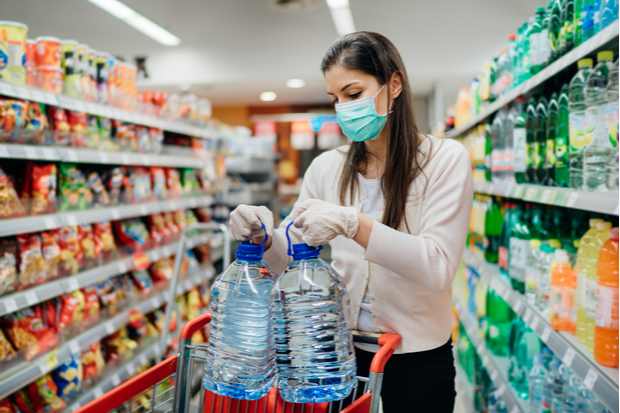
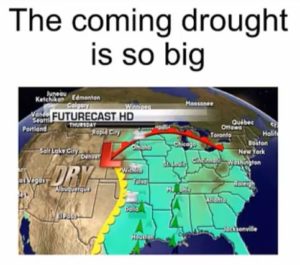
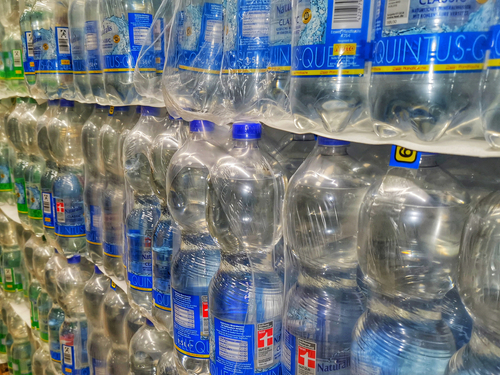
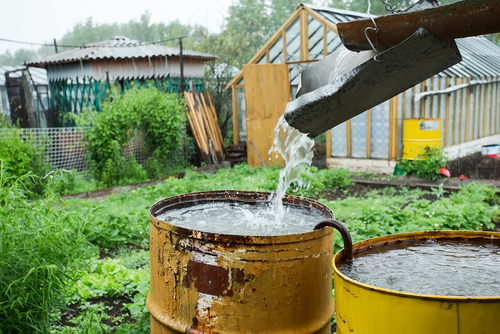
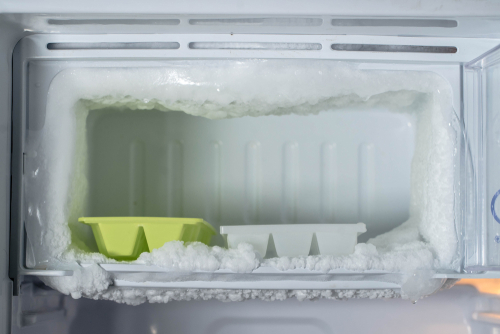

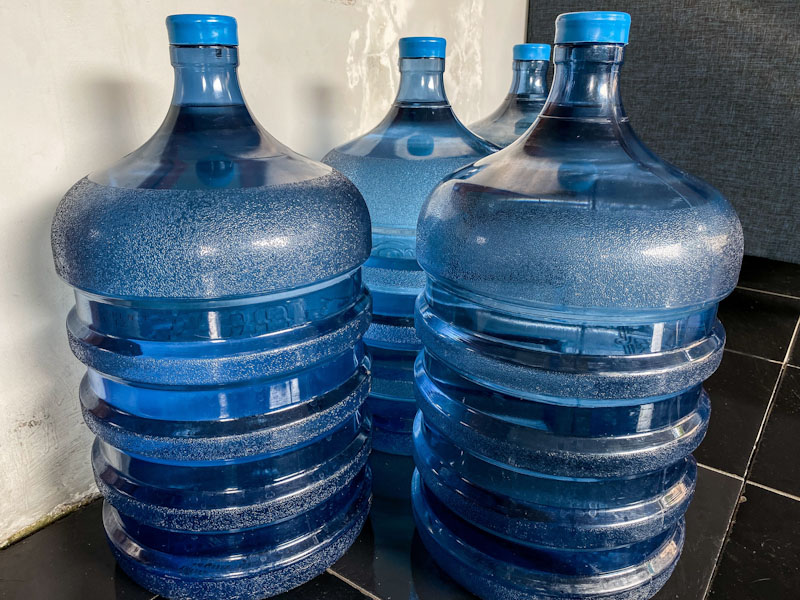
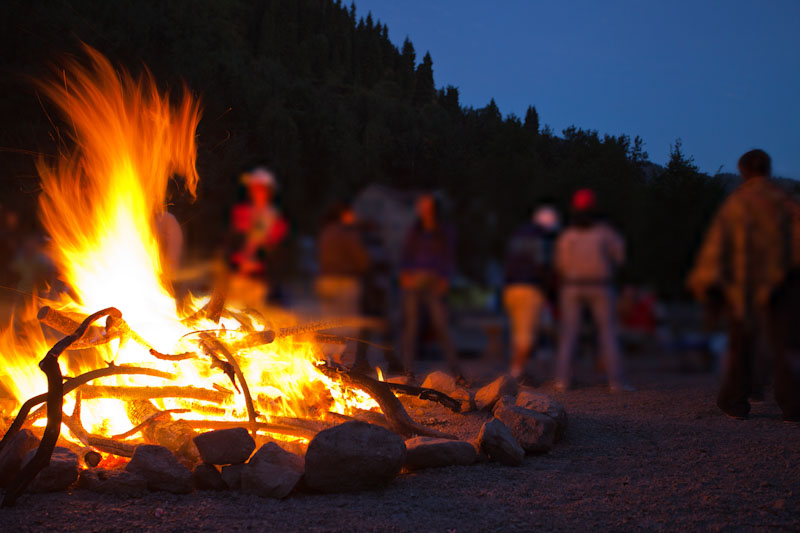
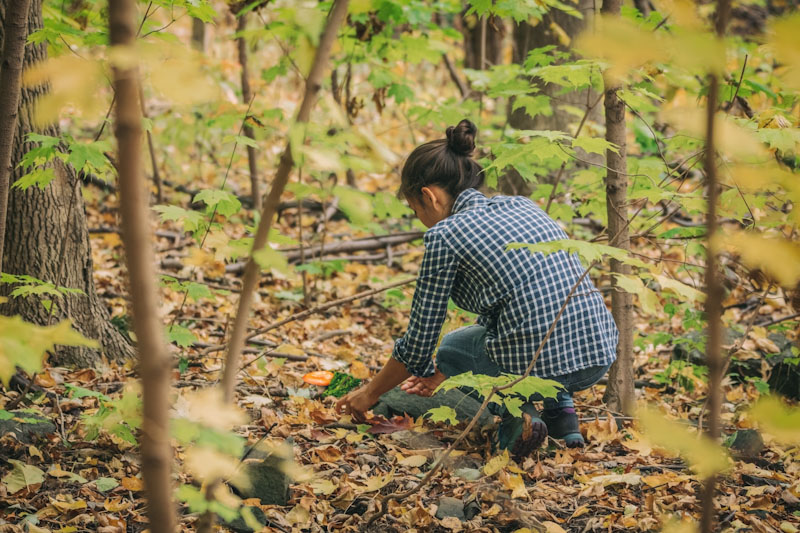
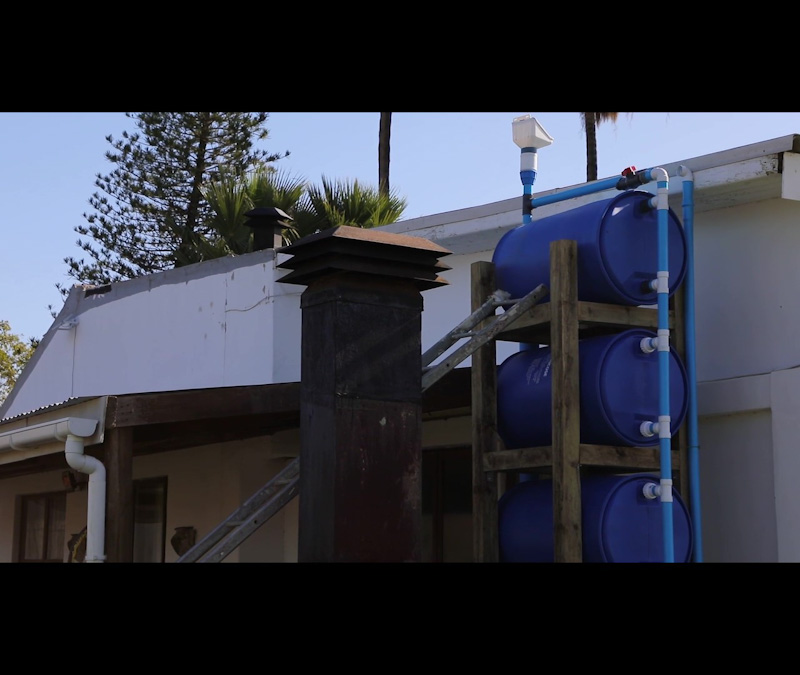


Lori | April 24, 2020
|
How do I determine if the plastic containers I have are BPA-free?
Scott Strong | April 28, 2020
|
HDPE is what you are looking for. Look on the bottom of the container. HDPE is food safe, there might be others. You can research (google) all the different types of plastic there are.
Bill In Idaho | July 10, 2021
|
Scott, HDPE (High-Density Poly-ethelene) Does Not Last all that well. HD Poly-Propylene is somewhat better. The specific “Water Storage” containers you buy are all made of basic Styrene.
Ted | April 24, 2020
|
I didn’t see well water mentioned.
We have high lime content & hardness, with a touch of red iron in a 165″. well, in N.E. WI.
Any tips for we well owners?
Woody | May 29, 2020
|
We distill all drinking, coffee, and some cooking water, (noodles, rice,…). Our wells are high in lime, very hard, tastes gamey.
red | February 24, 2022
|
According to the USDA, there isn’t a well in the US that isn’t contaminated in some way.
Grant Hill | August 26, 2022
|
Buy a Berkey water purification filter system. It will take out ALL impurities.
Bill in Idaho | April 25, 2020
|
It seems that everything I read about the General Subject of Water – lets the two Separate processes – Water Storage vs. Water Purification – get all jumbled together and confused. This is both dangerous And Non-Performing. Discuss the two Separately – and Carefully. Your Health and Life Depend on it.
Bill in Idaho | May 29, 2020
|
The two Primary Issues concerning Water Storage are : 1.) Covered / Enclosed so that NO LIGHT (Natural -or- Artificial) can reach Any of your containers; and 2.) Fill All of your containers “Brim Full” – this displaces air and is crucial. Be Careful and VERY Clean !
Ronald Levine | June 23, 2024
|
Store drinking water in glass. It won’t leach any chemicals. Store ultra purified water.
Scott Strong | April 28, 2020
|
Fish tanks can hold a lot of water, but chances are if you’re having to use your “reserve” water supply there probably won’t be any electricity. So keeping a fish tank up and running will be a very low item on the list of priorities.
Peter Wasserman | August 22, 2020
|
What about the sawyer filtration system which a majority of prepping and bushcraft sites recommend. They are rated for 100,000. Gallons supposedly, The filter is exceptionally well rated. Could this help?
John Colvin | July 11, 2021
|
Hey there, There is another area to be cautious about. In one town I lived in, the local aquifer was contaminated by a hazardous waste dump on a nearby military base. I believe it was responsible for my dog getting so many tumors.
In St. louis, there is a well know nuclear dumpsite close to the airport where 6700 tons of nuclear waste from the Manhattan project is buried and now leaking. People are getting sick.
So, I wouldn’t put faith in the government to secure clean water for you. Be diligent in
Checking your water sources and how they are transported and stored.
Be safe.
Jc
Alan | June 25, 2023
|
Find a River or lake And make sure the river is moving and the banks seem non polluted as everything tends to wash up there. Boil it after filtration and add some drops of chlorine when it’s cold again. Next store it in a 5 gallon food grade bucket. You don’t even need chlorine at that point. If it’s urban areas you’re gathering water in, get a spigot key for industrial buildings.
Another great tool to have is a marine bilge pump that is all mechanical. You can pump water from rivers and lakes. A large plastic tube is also a good item to have to suck water out of tight spaces after a rain.
red | February 24, 2022
|
Plastic should never be exposed to the sun. In case of algae, which can produce cyanide, they should be painted black. we’re building a water catchment, covered, and will use two 150 gallon containers to allow dirt to settle out. they will need to be painted.
Rudy | February 24, 2022
|
Don’t use trash bags unless you have clarity on whether they’re treated. Some trash bags are treated with pesticides.
mae | June 23, 2024
|
very true! The trash bags are treated with pesticides so that any flies can be dealt with. DON”T use trash bags to store anything but trash.
Bob L. | March 25, 2023
|
Lock down? 2020-2021, I just ignored the stay at home scam and went about my business as usual. Besides, I had an illness I called a funny flu in the first week of December 2019 that was flu like but different in ways. I was 75 at the time and just stayed indoors and treated with home remedies.
Unless there are authorities walking around wearing moon suits, there is no need to move into an underground environment.
Barbara Parker | March 25, 2023
|
I live off grid in the southern Arizona desert. I store water in 7 IBC totes and the bottles are wrapped in heavy black plastic to keep out light. All the tanks are connected with drinking water safe hoses. A solar aerator pump in one tank keeps them all from getting stagnant. Water is pumped thru a carbon filter and then into the house. Drinking/cooking water is again filtered with a Doulton ceramic filter. My water comes from 3 sources – rainwater captured from the roof (not much), hauled from a neighbors house that is on the community RO system, and generated by a 70 pint/day dehumidifier. Since all my power is solar generated I currently can only run the dehumidifier during sunny daylight hours. I’m in the process of adding more solar panels, batteries and a second dehumidifier. Our humidity is MUCH higher at night. I last hauled water about 7 weeks ago. We have had 6 rain showers totaling 8/10 of an inch. I have only used 300 of the 700 gallons I started with. 7 weeks ago. I estimate that the dehumidifier has supplied over 250 gallons of pure water. I hope to be totally water independent very soon. Summer is coming and the swamp cooler uses a lot more water.
Jim | March 25, 2023
|
How feasible is it to dig your own water well in case of emergency, I live in a townhouse with lots of association rules and little space? Is there a kit you can buy to prep for this contingency?
Barbara Parker | March 26, 2023
|
I doubt you could get a permit to add a well to your property and most well water is polluted. I live off grid and capture rainwater, haul water from a neighbors house that is on our community water system and generate water using a large dehumidifier. I store it in several 330 gallon food grade IBC totes that I found on Craigslist.
It’s important to block all light from getting into the tote bottles. I remove the bottle from its cage, wrap it in heavyweight black plastic and then slip it back into the cage. They can be stacked so gravity can help with flow. I connect several together using drinking water safe garden hose and fittings on the tote drain. You can find tons of info online if you search “storing water in IBC totes”. Have fun!
zelmer | March 26, 2023
|
Another water storage system is water bricks. They hold about 3.5 gallons and are designed to be stacked or they are slim enough to slide under a bed.
JESS | November 22, 2023
|
Thanks for mentioning the water bricks, Zelmer! I was JUST going to do that, as well. We have 14 so far, and I feel so much more prepared since we got those. We just rinse them out with white vinegar and water to get out any manufacturing residue and then rinse again. THEN, we add in R. O. Water, since we also have heavy calcium and ion in our water, which makes it LOUSY for anything beyond flushing toilets!! The water bricks stack together so neatly, we haven’t had much trouble in storing them, and they are chemical-free! I still have to fill the last 8 bricks over Saturday of Thanksgiving Weekend, and am looking forward to it. FoodStorageMoms.net is where I heard about these, and she also mentioned the Ion Water Treatment drops you can buy on Amazon to keep the water for longer-term storage.
Lynne Clark | July 25, 2024
|
Jess, please remember that R.O. water, like distilled water, has no healthy minerals such as calcium, magnesium, potassium, and other bicarbonates in it. This also reduces the pH and makes it more acidic. It also wastes between 3 and 20 times as much water as they produce. [https://www.forbes.com/home-improvement/home/reverse-osmosis-water-pros-cons/#disadvantages_of_reverse_osmosis_water_filtration_section AND it is expensive.
Lynne Clark | July 25, 2024
|
I forgot to add that the body requires these minerals and if the water does not have them, it will leach them out of your bones.
JESS | July 25, 2024
|
LYNNE: Since R.O. water is what we have access to, that is what we will be using. I am not worried in the slightest about minerals, as we take MinRex, a professional grade mineral supplement almost daily. Sometimes you just have to work with what you HAVE, rather than strive for perfection…and THAT is me saying this, even though I AM a perfectionist to some extent!! We also have a small store that we keep replenishing of AVOCA water, which has been tested to have the cleanest source and has themost beneficial minerals in it that is available from Spring Water in New York State!
By the way, I am a Certified Natural Health Professional, have been since 2006, so I know a lot about minerals and mineral deficiencies. Dr. Gary Young used to teach that if you had to chose between minerals and vitamins in a crisis, always go with the minerals!! Also, my Botanical Medicine Professor always told people one of the most important foods to have on hand for emergencies is PRUNES! SO MAUCH NUTRITION in them!
JESS | July 25, 2024
|
SORRY ABOUT THE TYPOS OR SPELL CHECK SCREW-UPS! NOT SURE WHICH AT THIS MOMENT.
Ronald H Levine | July 25, 2024
|
I agree. I drink highly purified water with zero concerns for my bones regarding “leaching.” My bone density is off the chart high and by what would have been deth or severe trauma for mostly anyone else, my bones have proven phenomenal strength and resilience in not breaking. I’ve heard the minerals in water theories. There’s not enough minerals in water and what is there is the wrong form and depending upon location too much of what is harmful and too little of what is needed and always in the wrong form. Plants have roots and produce the chemistry to utilize the minerals in the ground and convert it into biologically available and useful forms. Then I eat the plants. Animals graze on plants and get the healthful minerals in the plants and I eat the mineral rich animals. Besides, “leaching” is good. What minerals should be leached from the body? How about what forms arterial plaques (I’m measured at zero for that which is extremely rare), bone spurs (zero) kidney stones (zero) gall bladder stones (none) minerals irritants in joints (zero) and I choose to keep it that way. The body tries to remove these unwanted minerals and purified water is very helpful for that.
[email protected]
Trudy | November 24, 2023
|
For large quantities the most cost effective storage is above ground pools. We live in high desert and avg rainfall is something like 11”. We were able to easily fill 2 18 ft round pools for total of 12000 gallons. Bought pools without filter system so they were new $500 each. Last summer we bought a year old 24’ pool for $300 which will hold nearly 12000 gallons. If they are covered the water stays surprisingly clear, no algae.. The big pool did come with the sand filter. So for $1300 we have nearly 24000 gallons of storage capacity. A 2000 gallon water cistern can cost up to $3-5000. We plan to use the water for gardening but if we needed to we have a way to filter and sanitize for drinking. If you have the space an above ground pool will give you lots of bang for the cost and if it is legal to collect rainwater you can fill it for free. By just redirecting your gutters.
Jimmy | June 26, 2024
|
I literally never comment on ANY blogs, but these two issues are too important to remain silent.
1. I have to wonder whether “most” prepared people actually drain (clean) their water heaters every six months as recommended by the manufacturers. If they did, they wouldn’t be so quick to blithely recommend using water from such a tank. Those of us who do drain/clean our tank on schedule realize how quickly serious impurities accumulate inside that tank.
Failure to do this makes the many gallons of water inside COMPLETELY unusable for anything except, perhaps, watering plants, and I can’t recommend even that use. This is due to the rather extreme buildup inside the tank of several types of thick and thin impurities. The types of impurities typically depend on the normal quality of water going into the tank, plus certainly magnesium or aluminum from the anode inside all such tanks.
I once bought a house with a hot water tank that clearly hadn’t been flushed in several years. The impurities had accumulated so badly that I had to remove the lower drain spigot to use a long screwdriver to break up the hardened gunk, and then quickly reattach the spigot to SLOWLY drain whatever water would come out. I sure as heck didn’t want my family bathing in water that polluted, so needless to say I had it replaced several days later. This problem, by the way, is NOT uncommon!
But wait, there’s more. I religiously drain/clean the new tank every six months using the most EFFECTIVE instructions I’ve found (youtube. Com / watch / hs5N7HyDUWo (remove the spaces!)), which takes about an hour each time. At the three-year point (tank drained five times previously), the water coming out the drain hose had a distressing amount of cotton-like effluent coming out—proving how necessary the biannual cleanings are.
So, clean your doggone tank every six months! You still can’t drink or bathe in the water without distillation or filtering due to the dissolved metals and other potentially dangerous contaminants, but might be useful for some things.
2. The USDA is provably an unreliable source of important information–always has been far more political than scientific. This does not mean they’re ALWAYS wrong, but they’re sure wrong a lot. The warning reported in the comments above about ALL US well water being contaminated is provably untrue (BUT a great heads-up/reminder to do the following).
Obviously the quality of your hot water depends partially on whether you have a filtration system in the line before the well water reaches the hot water tank.
If you use well water you’re probably already doing this. States license commercial water testing companies or have government testing centers, so get your well water tested every year. I’ve seen prices from free to $75; just be certain a certified lab conducts the test.
My well water is tested every year and has always proved uncontaminated. This could change, of course, which is why I have it tested every year—MUST keep my family safe. I hope testing proves your well is safe too!
Lynne Clark | July 24, 2024
|
Jimmy, I went to the youtube site you listed, but it was just on how to watch videos on youtube. youtube.Com/watch/hs5N7HyDUWo So, I’m a little lost.
I have been filtering my city water for decades. Ever since a message was read out in church, coming from the city water department: all water should be boiled before use as it is contaminated with coliform bacteria. Imagine my surprise!! Why would they let contaminated water leave the treatment plant??? Besides, I rent – I would never get those notices since they are sent to the bill payer.
I filter the water and store it in 1 gal. cleaned-out vinegar bottle [since the plastic is thicker and stronger than milk or water bottles. I put some water into 1/2 gal. cleaned out milk bottles to store in the ‘frig.
Every time I see someone with a shopping cart full of cases of water bottles, I cringe!! What a waste of money and the plastic is leaching who knows what into the water. You don’t even know if those bottles had been left out in the sun or in a truck in the sun, speeding up the leaching process. And they have to travel a good distance and those metal trucks get HOT.
I want to grab them all by the hand and show them where the pitcher water filters are. They aren’t much, but better than nothing. If they REALLY need to have the water in little bottles, they can easily be refilled using a funnel. I hesitate, tho – do the people speak English?